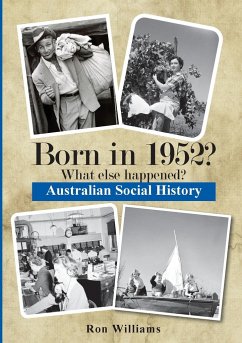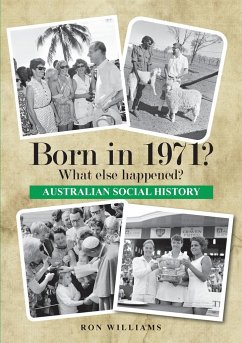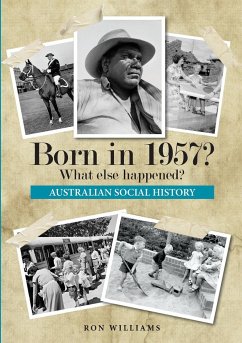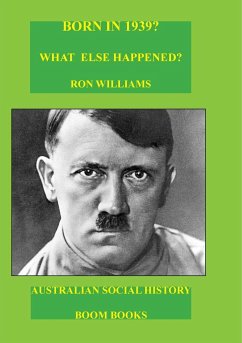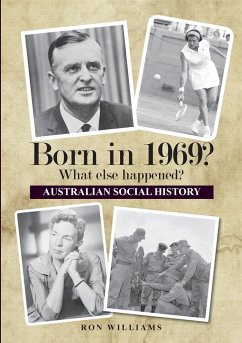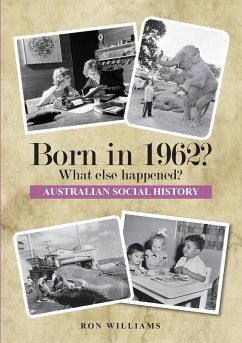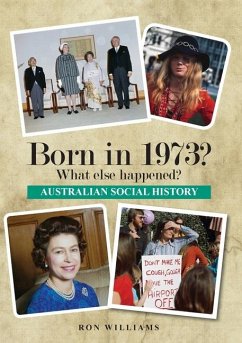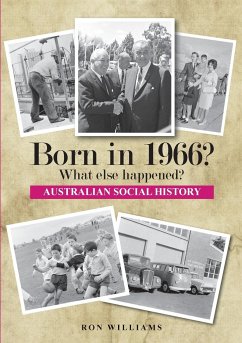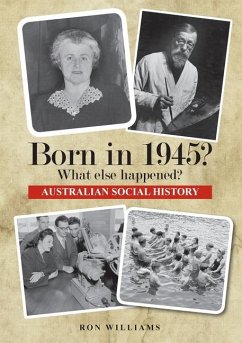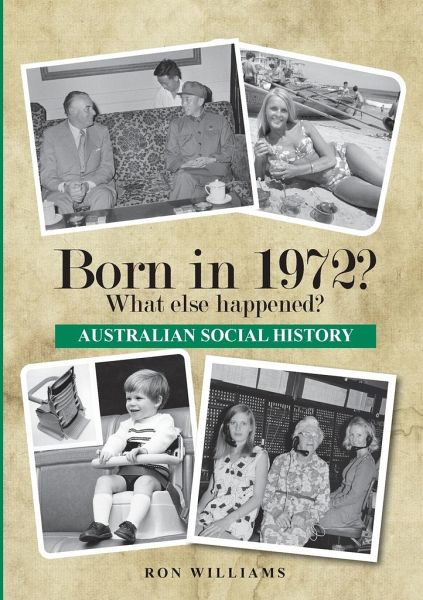
Born in 1972? What else happened?
Versandkostenfrei!
Versandfertig in 1-2 Wochen
14,99 €
inkl. MwSt.

PAYBACK Punkte
7 °P sammeln!
1972. It was "Time" for a change in Federal Government as Whitlam brought Labor back from the dead, and in our relations with China. Number 96 won the TV credits, women got equal pay for equal work, and call-up of Nashos ended. Israelis were killed at the Munich Olympic Games. Plan hijackers were now being shot overseas, and car seat belts were an issue at home. ¿....But after that, I realised that I knew very little about these parents of mine. They had been born about the start of the Twentieth Century, and they died in 1970 and 1980. For their last 50 years, I was old enough to speak with ...
1972. It was "Time" for a change in Federal Government as Whitlam brought Labor back from the dead, and in our relations with China. Number 96 won the TV credits, women got equal pay for equal work, and call-up of Nashos ended. Israelis were killed at the Munich Olympic Games. Plan hijackers were now being shot overseas, and car seat belts were an issue at home. ¿....But after that, I realised that I knew very little about these parents of mine. They had been born about the start of the Twentieth Century, and they died in 1970 and 1980. For their last 50 years, I was old enough to speak with a bit of sense. I could have talked to them a lot about their lives. I could have found out about the times they lived in. But I did not. I know almost nothing about them really. Their courtship? Working in the pits? The Lock-out in the Depression? Losing their second child? Being dusted as a miner? The shootings at Rothbury? My uncles killed in the War? Love on the dole? There were hundreds, thousands of questions that I would now like to ask them. But, alas, I can't. It's too late. Thus, prompted by my guilt, I resolved to write these books. They describe happenings that affected people, real people. The whole series is, to coin a modern phrase, designed to push your buttons, to make you remember and wonder at things forgotten. The books might just let nostalgia see the light of day, so that oldies and youngies will talk about the past and re-discover a heritage otherwise forgotten. Hopefully, they will spark discussions between generations, and foster the asking and answering of questions that should not remain unanswered.



